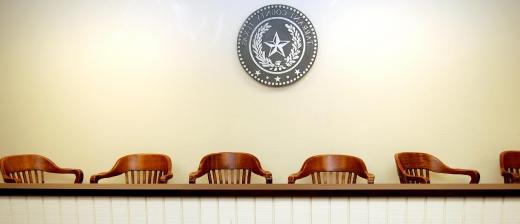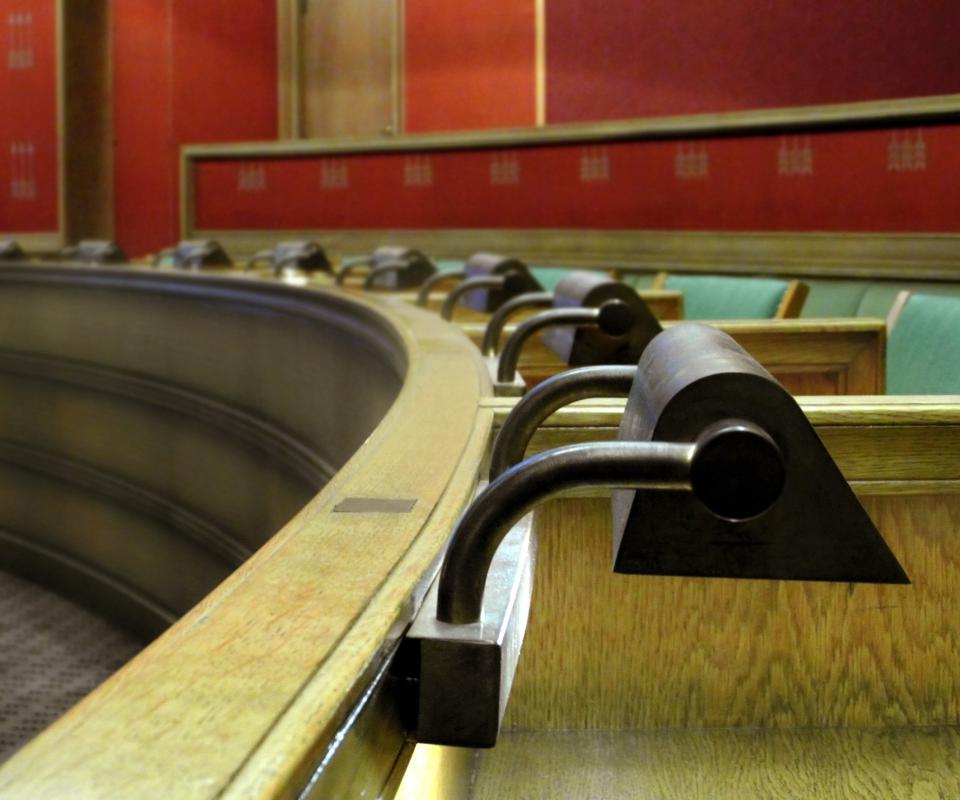At WiseGEEK, we're committed to delivering accurate, trustworthy information. Our expert-authored content is rigorously fact-checked and sourced from credible authorities. Discover how we uphold the highest standards in providing you with reliable knowledge.
What is a Jury System?
One of the most recognized legal institutions is "trial by jury". Most common in jurisdictions with an adversarial legal system, the jury system provides for a decision made by an unbiased jury of one's peers. The jury is a body of people, known as jurors, who are sworn to hear the evidence in a legal matter, determine what they believe to be fact and thereby render an impartial verdict.
The role of the jury is to act as "triers of fact." This means that as evidence is presented, the jury is tasked with the job of extracting the bits of truth out of all of the evidence presented. The jurors must decide what they believe to be true based on physical evidence, testimony and perceived credibility of witnesses, then render a verdict to settle the matter. Judges serve the role of legal interpreters by answering questions of law, such as what evidence is admissible, what lines of questioning are relevant and what procedures are appropriate.

After the jury has determined the facts of the case, it sometimes is asked to set or suggest a judgment or a penalty. In criminal cases, a jury's job is to determine whether a defendant is guilty or not guilty and, in some jurisdictions, to recommend or pronounce a sentence for those found guilty. A jury's job in a civil case is to determine whether a party was harmed as alleged in a lawsuit and, if so, to set a judgment, which most often is monetary.

The jury is selected from a pool of randomly selected people from within a jurisdiction. Potential jurors from this pool are questioned in a process called voir dire. The judge and attorneys are allowed to remove potential jurors in certain circumstances and accept those whom they deem to be fair and impartial. In almost every jury system, service is compulsory. If a person is called to serve, he or she must do so under penalty of law.

In rare cases, a jury might be sequestered, or isolated, during the trial. This is done to keep the jury impartial in high-profile cases. In order for jurors to remain impartial, they must have little to no outside impression of the case at hand. Information relayed by the media or others might be the product of rumor or might be legally inadmissible. Exposure to such information can muddle the facts of the case and cause impressions to be formed in a juror's mind that are not considered fair and impartial.

Jury tampering might become an issue in some cases, such as those involving organized crime or wealthy, high-profile defendants. Attempts by one party to bribe, threaten, intimidate or manipulate a juror's vote in some way threaten the fairness of the jury system. A judge can order the jury sequestered for the jurors' safety and impartiality. Jurors generally are housed in a suitable hotel or motel for the duration of the trial and deliberations when the judge orders this precaution. When sequestered, jurors are not allowed to have any unmonitored contact with outside sources of information and are not allowed access to the news or other media.

Thought to offer the most fair and impartial means of determining guilt or liability within the court system, the modern jury system is used in many countries. The means of jury selection, the size of the jury and the requirements for a jury's decision can vary from one jurisdiction to the next. Local, regional and national laws also can make the process unique to a specific jurisdiction.
AS FEATURED ON:
AS FEATURED ON:
















Discuss this Article
Post your comments